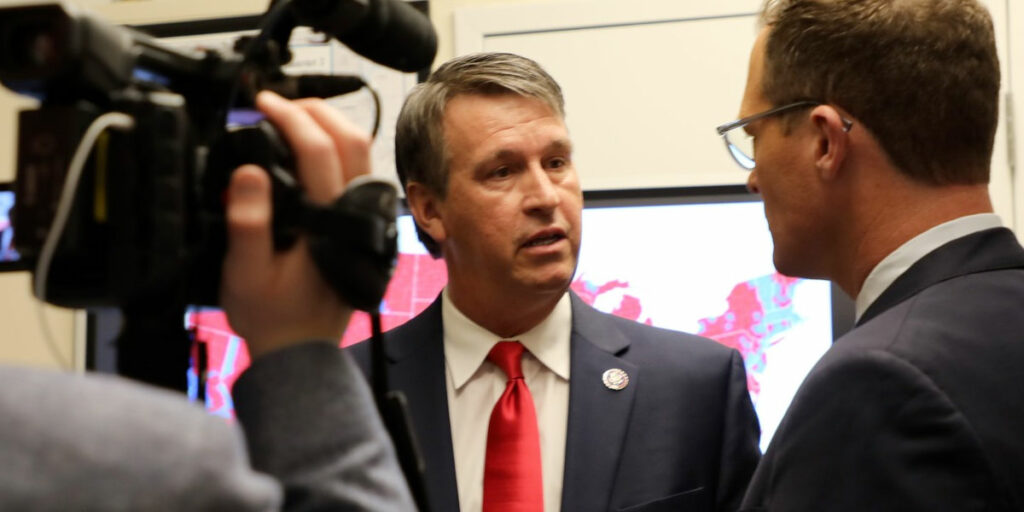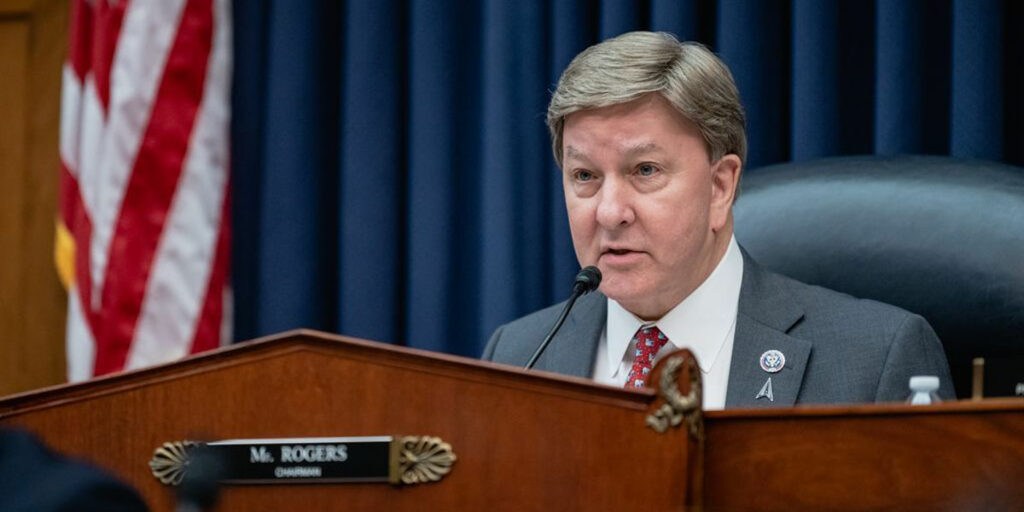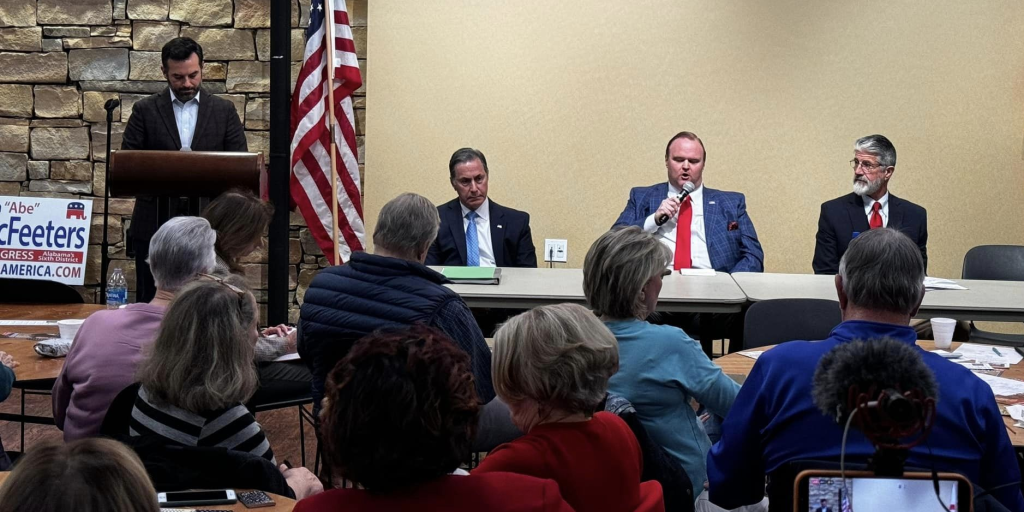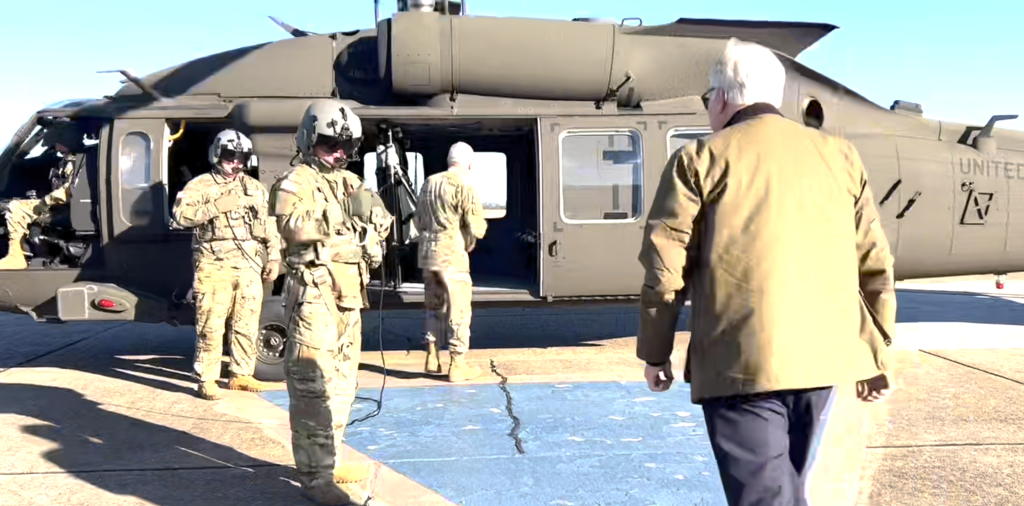Republican Rep. Mike Rogers (AL-3), who serves as the House Armed Services Strategic Forces Subcommittee Chairman, said Friday in an interview with Sirius XM Radio’s Breitbart News Daily that the United States needs a Space Force to meet the threats that China and Russia pose in space.
“We are dead serious about meeting this threat from China and Russia,” he said, speaking with Breitbart News Daily host Amanda House. “People have to understand that we have become heavily dependent on space to fight and win wars, that’s our eyes and ears for the military.”
Rogers emphasized that the emerging threat posed by these two superpowers can be mitigated with proper strategy and preparation.
“China and Russia want to be able to take our eyes and ears out, and we can’t let that happen,” he asserted. “We have got to get back in the position of space dominance.”
Vice President Mike Pence, while speaking alongside Secretary of Defense James Mattis at the Pentagon on Thursday morning, declared that “establishing the Space Force is an idea whose time has come.”
The vice president explained the Pentagon, under Mattis’ leadership, has begun the process of establishing the Space Force as a sixth branch of the U.S. military.
Alabama could be set to benefit in a major way with the presence of Redstone Arsenal in Huntsville.
Rogers told Breitbart News Daily that a Space Force is long overdue.
“When it comes to these satellites, we’ve got to be able to move agile and move quickly,” he warned. “And by the way, many people don’t realize this, but China set up their own separate space service a year and a half ago, and Russia reorganized before that — we are way behind the curve on it.”
The veteran Alabama Congressman explained why the current American military structure involving space will not work moving forward.
“We started noticing about three years ago some real deficiencies in our capabilities particularly in relation to Russia and China who have become much more aggressive,” Rogers outlined. “And the more we looked at it, the more it became painfully apparent that we were not going to be able to meet the challenge of this new threat with our current structure, which currently has 90 percent of our national security space assets in the Air Force. We have a little bit in the Navy, a little bit in the Army, but most of it in the Air Force.”
He continued, “And [the Air Force is] just geared towards air dominance and space is just a subordinate mission. So the more we studied it, the more it became obvious that we were going to have to make this change just like the Air Force had to evolve out of the Army, the Space Force is going to have to evolve out of the Air Force. Because we need a service, because space has become so important to our ability to fight and win wars, we have to have a service that’s dedicated to space dominance and builds a culture of excellence when it comes to that mission.”
The proposed new branch would have their own budget, their own culture, their own promotion system, and their own educational system within the Air Force Academy.
Rogers does not expect establishing the Space Force to be a relatively expensive endeavor, considering it would be formed with existing active duty personnel in the Air Force, Army, and Navy who work on space, as well as subordinate civilians.
“We don’t expect it at all to get too expensive because we’re going to use existing personnel,” he said. “We don’t expect a lot of additional overhead and we are not going to let this thing be bureaucratized like the other services have.”
Rogers added, “In fact, it’s our expectation because we’re going to be designing this and watching it from birth, we’re going to do everything we can to keep it from getting bloated and gold-plated, and turning into what we already have which is a very slow and lethargic bureaucratic procurement system.”
The Space Force will still require action by Congress, which exclusively has the power to establish a new military branch, but Rogers is very optimistic that this will happen.
In fact, he and the ranking Democrat on Strategic Forces proposed creating a space corps a year ago, and it received unanimous and bipartisan approval from that subcommittee before being supported by the House Armed Services Committee. It was the Senate that slowed down the process by calling on the Pentagon to study the idea of a space corps first.
“The House said, ‘We think we need this,’ so [we] ordered the Pentagon to study it and let us know if they agreed … the Pentagon decided, ‘Yeah we do need a Space Force,’” Rogers explained.
The Pentagon will now be separating the proposed Space Force from the other branches over the next five months. Afterwards, they will develop a legislative proposal on what is needed regarding statutory authority to finish the process.
Rogers expects the Space Force to be authorized in next year’s National Defense Authorization Act (NDAA), which is annual must-pass legislation that authorizes all Pentagon activities and programs.
Sean Ross is a staff writer for Yellowhammer News. You can follow him on Twitter @sean_yhn













